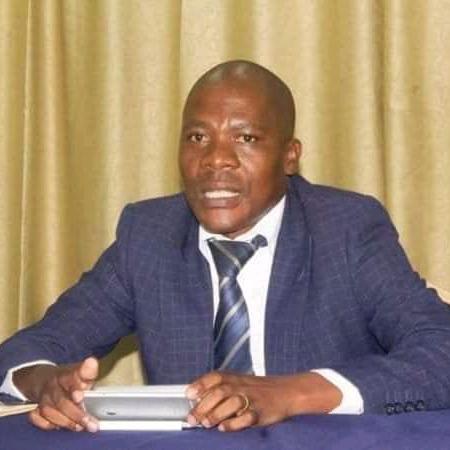By Iommie Chiwalo

The Centre for Democracy and Economic Development Initiatives (CDEDI) calls for government to come up with deliberate policy to protect the local construction industry.
The remarks by CDEDI Executive Director Sylvester Namiwa comes at a time road projects audit report shows that in the sector there is deep-rooted corruption.
Following natural disasters, lately Cyclones such as Ana and Gombe, CDEDI instituted an initiative to inculcate the watchdog spirit in the citizens that double as taxpayers and
voters, to be keeping a keen eye on public infrastructure projects such as roads, railways and bridges that are being implemented in their localities as one way of guaranteeing value for the money spent on the projects.
The initiative was aimed at providing an opportunity for the country to raise the standards of public infrastructure, and fight the nauseating deep-rooted corruption exposed through poor workmanship, negligence and outright incompetence of some contractors in the course of implementation of some projects.
Namiwa says although the impact of the cyclones and tropical storms has been
devastating, Malawians are their own witnesses that, to a larger extent, the loss of lives, and government finances are due to poor workmanship.
“It does not need emphasis that a good road network is a catalyst for development. However, as a country, we have needlessly lost lives to road accidents because of poor conditions of the roads and washed-away bridges,” he says.
In its key findings CDEDI established that the less talked about financial discrimination is taking its toll in the construction industry in Malawi for example from Marka (Nsanje) to Meru (Chitipa), everything is in the hands of Chinese firms.
This was observed when in the interest of transparency and accountability, CDEDI demanded the disclosure of contractual agreements for various projects from the Roads
Authority (RA), in order to ascertain whether or not the RA’s clients abided by the contractual obligations.
The organisation feels that the Chinese government sponsored companies are creating advantage and, in the process, killing the competition by quoting prices that are lower than the Engineers’ estimates.
“Our prediction is that in five years’ time after successfully killing the local contractors, the Chinese are likely to raise the prices to recoup all they invested in this scheme. The Chinese, unlike their European counterparts, use the cheapest bids as a strategy to enter the African market, while companies such as Starbag use high quality strategy. It all started like this in the neighboring country Zambia,” he says.
Dangerous for the country is an observation that the RA is heavily infiltrated by politicians to an extent that professionalism does not matter at all.
Namiwa says that saddening enough is the fact that officials conduct themselves as half technocrats and half politicians as a survival mechanism to escape from being labeled with political colours, especially when governments change.
“There is also a tendency of deliberately creating situations that lead to delays and price
escalations with some selfish motives to the extent that some project designs are non responsive to the face of climate change, coupled with heavy deforestation that forces rivers to change their courses now and again,” it has been observed.
CDEDI has since asked Government to come up with a deliberate policy to protect the local construction industry from being wiped out of the market.
Namiwa says Government should intervene on the rates to make sure that local
contractors are working for a profit in the subcontracts since the current rates do not even accommodate a break.
He has also recommended that the current bidding system should be changed.
“And that the RA should be sanitized by removing those that were hired by politicians to advance political agendas. Let professionals that can defend their actions or
inactions work on behalf of Malawians, and not foreign and political
elements,” he says.
Adding that the RA officials should not be allowed to get away with their deliberate mistakes that end up costing the taxpayers billions of Kwachas.
“A platform should be created for linkages among service providers and the RA to avoid cases of multiple contracts, duplication and/or conflicts in the project implementation. Contractors found deliberately contravening the contractual agreements, creating situations that end up in delays and price escalations should be held accountable for their sins and should be made to pay or should be deregistered,” he says.
He further asks Political parties to adopt the lobbying policy as is the case in United States and the funds realized should be invested even if it means buying shares and setting up companies.
“After all the monies will be spent here unlike the case where our hard-earned taxes are used to build the already strong economies. We also recommend that the project screening layers should be consolidated, apart from being time consuming they are prone to corruption,”.
He has called for the need for an independent team of engineers to set engineers’ rates, reflective of the real situation on the ground so that the subcontracting should be a reality.
“Above all, there is need for public infrastructure master plan so that projects should be predictable, unlike being at the mercy of politicians,” he says.
The organisation has further called for uniformity in the way project supervisors are treated either in donor funded or taxpayers funded projects saying there is urgent need to revisit the project return periods in the face of climate change and heavy deforestation that forces rivers to change their course now and again.

